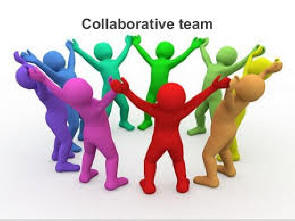|
Life-Skills
...Students become cognitively aware of their life
skills while doing activities:
From our experiences in business & education, we
have created a curriculum that sifted out the manual
part of work and created thinking employees with unique
mindset thinking and life-skills to be productive in
your organization. These are the people that AI will be
difficult to replace.
|
• Attitude (positive attitude, focus,
emotions, flexible, moral leadership )
• Social
& emotional learning ( character
development, empathy,
responsibility, self-esteem,
flexibility, self-disipline )
• Team-work (
charter, respect, values, listening,
trust, diversity, culture, ) ... working
like a sports team
• Problem-solving ( creative
& critical thinking, decisions,
planning, curiosity, reflection
)
• Personal skills (financial
literacy, time
management,
communication(
verbal & non-verbal,
goal setting)
• Business literacy (quality, processes,
matrices, reporting, leadership,
judgment, customer focus, info. mapping )
-
Key individual interface Email,
Social networking, YouTube, Self-branding
skills
(Who you are ), Networking
|
|
Sacred Skills
|
|
Sacred thoughts |
Elements |
|
Wisdom:
good
decisions and taking the path that
provides value to all (society) |
Thinking skills (creative, critical, system),
SEL learning, Decision making, Reflection,
Innovation |
|
Community:
People and relationships count |
Listening skills, communication skills,
teamwork, Interpersonal skills, Relationship,
Measurements |
|
Social justice:
leaving the world a better place than you found
it |
Problem solving skills, positive outlook,
Curiosity, Process skills, Executive functions
|
|
Purpose:
Sense of direction that you achieve, the goals
you set |
Put first things first, Pro-active outlook,
Begin with the ends in mind, and Win-win for
all, Time-management, Project planning |
|
|
|
|
Major skills in
each process: |
|
Process |
Skills |
|
Ice breaker/ Intro. |
Greeting skills, Eye contact, Non-verbal
skills, Positive attitude
|
|
|
|
|
Forming the team |
Diversity, Values of a culture, Time
management Listening skills,
Collaboration, Character development,
Negotiation |
|
|
|
|
Picking the project |
Team work, Handling adversity
Project planning, Scheduling
|
| |
|
|
Research &
planning |
Measurements, Goal setting, Scheduling
|
|
|
|
|
Problem solving
|
Thinking skills. Self-reflection
Problem-solving structure,
Brain-storming,
Decision making, Sorting |
|
|
|
|
Testing & writing
|
Feedback, Iterations, Communication
(without phones)
Elevator pitch,
|
|
|
|
|
Public dialogue/ Celebration
|
Meta-cognition,
Presentation skills, Communications,
Info-mapping |
|
|
|
|
Grouping of
skills and discussion: |
|
Skill Grouping |
Description
|
Comments
|
|
Questioning |
To understand, draw out and learn |
Socrates was one of the greatest educators
who taught by asking questions and thus
drawing out (as 'ex duco', meaning to 'lead
out', which is the root of 'education')
answers from his pupils. |
|
Communications
lessons
|
verbal,
non-verbal and listening |
|
|
Decision making
|
Kepner-Trego |
|
|
Study skills
teach students how to Study skills:
www.studyskills.com |
-
manage
time
-
be
organized
-
improve
reading comprehension
-
listen
effectively
-
take more comprehensive notes
-
communicate more effectively in written
and oral expression
|
During the meeting:
|
|
Social & Emotional Learning |
Character development, Empathy.
Responsibility, Self-esteem |
social rules, effective listening, people
watching, social self-efficacy, image
management |
|
Innovation |
Improvement, invent, advance |
During reflection, How can I make a process
better?
|
|
Entrepreneurship |
Creating value where there was none! |
During reflection. |
|
Learning from failure
This reminds me of IDEO’s philosophy of
“fail early and often to succeed at the
end”. |
Not success, dissatisfaction
|
Rapid prototyping solutions and seeing what
works....Dyson argues that there is more we can learn
from failures than from successes. Failure
is a dress rehearsal for success. I am
always struck by James Dyson’s claim that he
built 5,127 prototypes before he got it
right. |
|
Risk taking/ Stretch goals |
Possibility, Chance
Probability |
Strive for more innovative solutions,
Shaping process
|
|
Planning |
Arrangement, scheduling, forecasting |
Developing plan for World project
|
|
Measurements/ feedback |
Extent, coverage, range |
Setting learning goals, How do we validate?
Balanced scorecard used in financial
measurements
|
|
Process methods |
Method, course of action, procedure |
Problem solving process, Decision process,
Use tools
|
|
Continuous improvement/ Quality |
Value, worth, excellence |
Continue to make the process or results
better
Quality plan review
|
|
Character traits
http://character.org/ |
Personality, |
defines “character” comprehensively to
include thinking, feeling, and doing
|
|
Thinking skills
Thinking does not occur spontaneously but
must be evoked by problems and questions or
by some perplexity; confusion or doubt … John
Dewey
6-Hats
-Collaborative spirit
|
What the term refers to is the human
capacity to think in conscious ways to
achieve certain purposes. Use of the mind to
form thoughts, to reason, to reflect. |
Problem solving process,
Wall hanging, Done thru facilitation
|
|
Time management …MIT
(Most important Task) |
Point in time, control, schedule MIT first
on list, Prioritize tasks
|
Setting schedule, follow it
Part of planning process |
|
Financial literacy |
Monetary, Economic, Fiscal,
Mastery, Knowledge |
-
Planning, cost structure
-
Become a critical consumer, loans
-
Risk management
-
Income
-
Money management
-
Planning, saving and investing
-
Happiness quotient ... How do you
measure it?
|
|
|




















